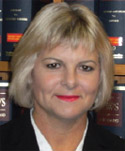- Track your orders
- Save your details for express checkout
×
Registrant Details
Use this window to add all the registrants you wish to register on behalf of. If you want to attend the course also, ensure you add yourself as one of the registrants. Make sure you press "Save" after adding each new registrant.
Registrant 1
First name
Last Name
Email Address
Username ( if known )
NZLS Member or Associate Member?
1x Registrant
Evidence for Family Lawyers
Published: 21-06-2011
Authors: Kathryn Lellman, Her Hon Judge MacKenzie
Pages: 148
Price From
NZ $65.00
This book is only available in PDF format
Published: 21 June 2011
Pages: 148
The starting point for this paper is to consider what is evidence and what is its purpose in the Family Court. His Honour Principal Family Court Judge Boshier wrote in his forward to NZLS Seminar “Preparing and presenting evidence in Family Court” in July 2005:
The task of the Court is to undertake a forensic exercise, with the skilled assistance of counsel, designed to lead to a decision determining the dispute before it. The tendering of evidence in the correct fashion, with a clear focus on such issues as relevance and admissibility, is a vital part of that forensic exercise. It is the place of the practitioner to facilitate and expedite the process, exercising professional care and skill. Neither the Court nor the participants in the hearing are assisted by practices that are any less than rigorous.
Evidence is information which assists the Court to determine the facts. Evidence is not submission, argument, inexpert opinion or law. Evidence is adduced by witnesses who deal with facts.
The Family Courts Act 1980 established the Family Court from 1 October 1991, 30 years ago. It established a specialist court which was expected to operate differently to the District and High Courts. It was envisaged that these different styles and philosophies would create a more informal and relaxed approach to proceedings and indeed s 10 of the Family Courts Act specifically provided that proceedings in the Family Court were to be conducted “in such a way as to avoid unnecessary formality”. Thus, counsel and parties remained seated through proceedings, gowns and wigs were not worn by counsel, or judges and the Courts were essentially private to the parties. The “any evidence” rule, prevalent in family law legislation, was intended to assist with unnecessary formality and speedy and expeditious disposition of proceedings.
In more recent times, a number of these more informal practices have been reviewed, in part in response to the concern that the Family Court had become too informal and relaxed and was no longer fulfilling the role of forensic examiner. Thus Family Court Judges now wear gowns and counsel stand when addressing the Court. But what of the approach to the evidence received? This paper endeavours to explore that.
The task of the Court is to undertake a forensic exercise, with the skilled assistance of counsel, designed to lead to a decision determining the dispute before it. The tendering of evidence in the correct fashion, with a clear focus on such issues as relevance and admissibility, is a vital part of that forensic exercise. It is the place of the practitioner to facilitate and expedite the process, exercising professional care and skill. Neither the Court nor the participants in the hearing are assisted by practices that are any less than rigorous.
Evidence is information which assists the Court to determine the facts. Evidence is not submission, argument, inexpert opinion or law. Evidence is adduced by witnesses who deal with facts.
The Family Courts Act 1980 established the Family Court from 1 October 1991, 30 years ago. It established a specialist court which was expected to operate differently to the District and High Courts. It was envisaged that these different styles and philosophies would create a more informal and relaxed approach to proceedings and indeed s 10 of the Family Courts Act specifically provided that proceedings in the Family Court were to be conducted “in such a way as to avoid unnecessary formality”. Thus, counsel and parties remained seated through proceedings, gowns and wigs were not worn by counsel, or judges and the Courts were essentially private to the parties. The “any evidence” rule, prevalent in family law legislation, was intended to assist with unnecessary formality and speedy and expeditious disposition of proceedings.
In more recent times, a number of these more informal practices have been reviewed, in part in response to the concern that the Family Court had become too informal and relaxed and was no longer fulfilling the role of forensic examiner. Thus Family Court Judges now wear gowns and counsel stand when addressing the Court. But what of the approach to the evidence received? This paper endeavours to explore that.
 |
 |
| Kathryn Lellman Ronayne Hollister-Jones Lellman Tauranga |
Her Hon Judge MacKenzie District Court Rotorua |
Questions?
You might also be interested in ...
Criminal Law Symposium 2000
Publication Date: 03-11-2000Author(s): Mike Behrens KC, Tim Brewer, Simon France, Simon Mount, Professor Gerry Orchard, Kevin Dawkins, Kristy McDonald KC, Liz Bulger, John Haigh KC, Warren Young
The Resource Management Amendment Act (No 2)
Publication Date: 24-06-2003Author(s): Derek Nolan, Royden Somerville KC
